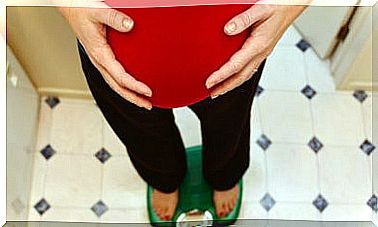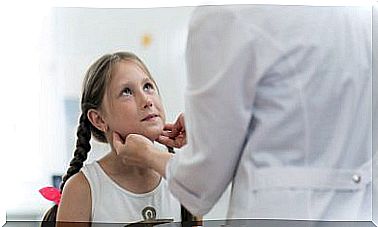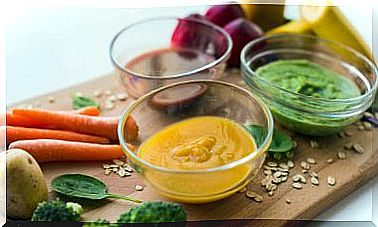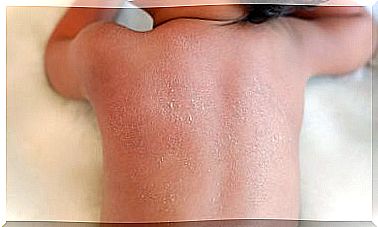20 Diseases That Breastfeeding Can Prevent

At this point, no one doubts that breast milk is the best food a mother can offer her child. The benefits are many, both for the mother and the baby. Did you know that there are many diseases that breastfeeding can prevent?
Without entering into judgments about the decision to breastfeed or not, since each woman should choose freely and without any fault, the truth is that all scientific studies corroborate the positive consequences of this practice.
The World Health Organization establishes that a child should be exclusively breastfed for the first 6 months of life. This period should be extended, if possible, up to 2 years of age, already in combination with other foods.
What is breast milk made of?
You may be surprised to learn that breast milk is a living fluid, capable of adapting to the nutritional and immune requirements of the baby as it grows. During the first 3 or 4 days after delivery, the mother produces colostrum; a thicker, yellowish liquid that is poor in volume, but rich in nutrients. Then, between 15 days and a month, what is known as mature milk is generated.
As surprising as it may seem, the totality of the components of breast milk are not yet known, since they not only change depending on each woman, but also in the same mother depending on the breast, the feedings and the different stages of lactation.
However, it is possible to identify the following characteristics of breast milk:
- It is made up of the carbohydrates, proteins and fats that the baby needs.
- Provides digestive proteins, minerals (iron, calcium, zinc, sodium), vitamins (E, A, D, K), and hormones that babies demand.
- It has antibodies that help keep your baby from getting sick. For example, it contains immunoglobulins, which protect the mucous membranes of the infant; lymphocytes and macrophages, which act as a barrier against the environment; lactoferrin, which in addition to protecting against germs and bacteria, contributes to the absorption of iron.
With all this, it is not surprising that there are many diseases that breastfeeding can prevent. Now, what conditions are we referring to specifically?

Some of the diseases that breastfeeding can prevent
During breastfeeding, the components that the baby receives help him fight some health conditions. These are the main ones:
- Colostrum protects the newborn from a hemorrhagic disease, thanks to antioxidants and quinones.
- Immunoglobulins cover the digestive tract, still immature, and prevent the adherence of viruses, bacteria and parasites such as: Escherichia coli , Salmonella, Streptococcus pneumoniae (pneumococcus), staphylococcus, rotavirus, among others.
- It reduces the risk of respiratory infections such as bronchitis or pneumonia , since it helps the organs that are involved in this function mature,
- It favors the reduction of sudden infant death.
- Prevents allergic diseases.
- It is a barrier against skin conditions.
- It reduces the risk of contracting conjunctivitis.
- Avoid ear infections.
- It is effective against diarrhea or constipation.
- Improves neural connections and brain development.
- Lowers the risk of anemia.
- Improves visual ability.
Beyond all the above, it is interesting to emphasize that its function goes beyond protecting the baby in the first years of life. It also has the ability to defend against diseases of adult life, such as asthma, diabetes, arteriosclerosis, heart attacks, etc.
Benefits for the mother
In addition to the diseases that breastfeeding can prevent, this mode of feeding also has many positive points for the mother. At this stage, the bond that is generated between mother and baby goes far beyond what we imagine. It is an unrepeatable and truly inexplicable connection.
On the other hand, oxytocin secretion increases when breastfeeding, as occurs with physical contact. This has a positive effect on the mother, since it reduces the risk of suffering from postpartum depression.
Due to the increase in this hormone, your confidence level also increases, the levels of cortisol – the stress hormone , which reduces anxiety – decrease, the sensation of pain is softened and it stimulates the production of milk.
Another benefit is that, while a woman breastfeeds, oxytocin activates all the hormones necessary for her own digestion. The functions of the stomach and intestine improve to the point that a better energy use is generated from all the foods that the mother eats.
Also, after delivery, the suction of the breast causes the uterus to contract and return more quickly to its natural size. Breastfeeding also reduces the risk of breast, ovarian, or cervical cancer. Finally, an extra point in favor of breastfeeding is that it helps the mother to regain her figure more quickly.

Beyond health
It is clear that there are many diseases that breastfeeding can prevent, and the benefits to mother and baby are enormous. However, its benefits go beyond health. For example, we can highlight some other aspects, such as the constant availability of food for the baby.
In the same way, we know that milk is always ready and at the right temperature. Nor is it necessary any type of equipment to transport it and, as if all this were not enough, it is 100% hygienic and safe for the baby. Without a doubt, a food that in no way can be wasted.










